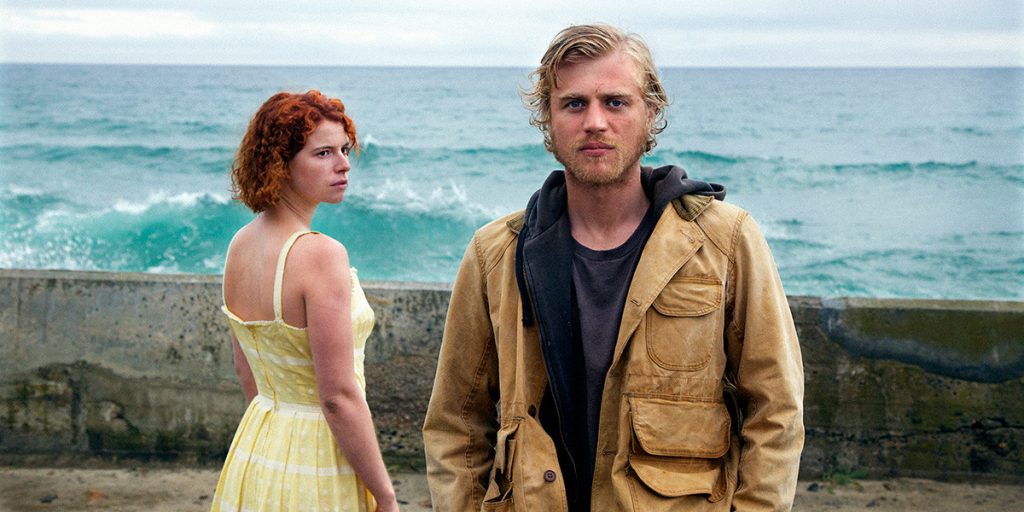Reviewed by Lee Hill
Francois Truffaut will never be entirely forgiven by some of the country’s film buffs for saying that British cinema was a contradiction in terms. For every bold visionary like Michael Powell, Nicolas Roeg, Derek Jarman or Lynne Ramsay, there are countless directors whose plodding efficiency and middle brow choice of subject can make one long for the personal signature of a Richard Donner (yes, he did churn out those Lethal Weapon films, but we did get The Omen and Superman). In recent years, the London Film Festival, doubtlessly for a complex of political reasons, often opens and closes its otherwise eclectic programme with the latest paint-by-numbers example of a homegrown literary adaptation, docudrama or biopic that is often the filmic equivalent of “please stand for the national anthem.”
I am pleased to say that Beast, which I first saw at the LFF last autumn, is not a dutiful excursion through the national heritage. Instead writer/director Michael Pearce’s debut, Beast, possesses a strong sense of place and rare psychological complexity, while slyly subverting the traditional narrative demands of a murder mystery.
Jess Buckley plays Moll, a twentysomething still living with her parents on Jersey. Due to a trauma that is revealed later in the film, Moll is treated by the family with a mix of condescending pity, fear and a not a little distaste. Feeling suffocated and alienated by her domineering mother (Geraldine James), an older sister expecting twins, reactionary brother and a dull, but menacing, suitor, a local policeman, she longs for independence. The fact that her father is suffering from Alzheimer’s underscores the point that all the men in her life are either absent or offer only self-important platitudes rather than genuine friendship or love. Adding to a mood of claustrophia are a concurrent series of murders of young women the same age as Moll.
After a night clubbing, Moll is rescued from a near rape by Pascal (Johnny Flynn) a mysterious local man who lives off poaching and odd jobs. In sharp contrast to her family, Pascal accepts Moll for who she is and the two soon embark on a passionate affair. Pascal is a Heathcliff figure to Moll. His combination of good looks, uncontrived masculinity, connection to the land and ability to connect with Moll emotionally take much of Beast into a near mythic realm.
As is often the case with love stories that transgress the social norms, the idyll Moll and Pascal establish for themselves away from the main town is disrupted. Pascal becomes a person of interest as the police struggle to solve the killings. In a more conventional film, this shift in tone would handled with autopilot efficiency, but Pearce sustains a remarkable mix of suspense and ambiguity to the film’s provocative finale.
Jersey, with its eccentric relationship to the UK and EU and proximity to France, is filmed by Pearce, who grew up on the island, with a sympathetic, but unsentimental eye. The mood and pacing of Beast reminds one of the Australian New Wave of the 70s, particularly Peter Weir’s The Last Wave. By keeping dialogue to a minimum and emphasizing the omnipresence of nature surrounding a close-knit town on the edge of the sea, Pearce, along with his cinematographer Benjamin Kracun, gives Beast an unworldly mood. Against this disquieting landscape, Beast is blessed with a cast that looks as if has lived on the island for years. And last, but not least, the portrayal of the two lovers by Buckley and Flynn takes us into troubling emotional territory without stumbling.
When I first saw Beast, I was not entirely sure it had completely earned the twists and turns of its the last reel, but those final minutes have stayed with me months later. That resonance is further confirmation that Beast is not just a British film of promise, but more importantly, one that stylishly transcends definitions of what a British film should be.
Script and Direction: Michael Pearce
Starring: Jess Buckley, Johnny Flynn, Geraldine James
